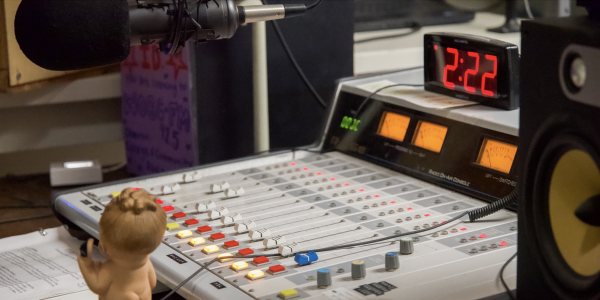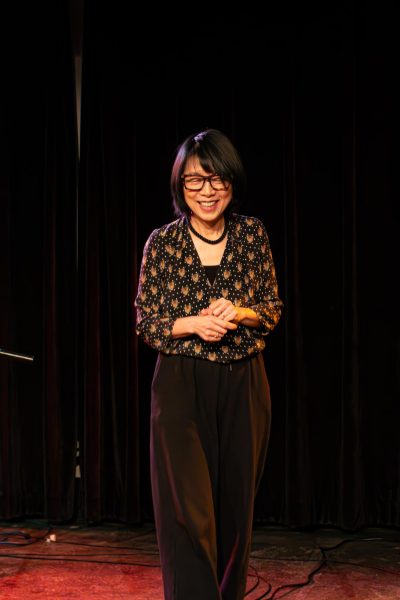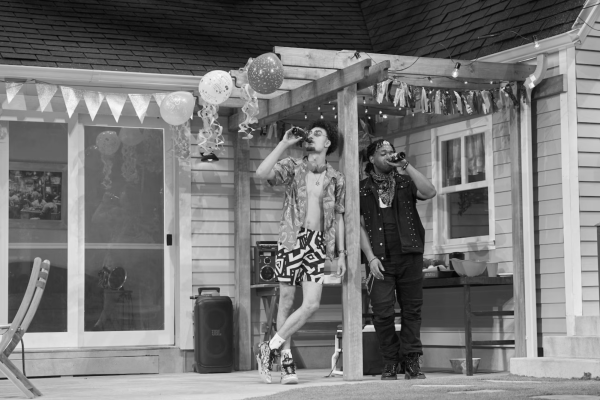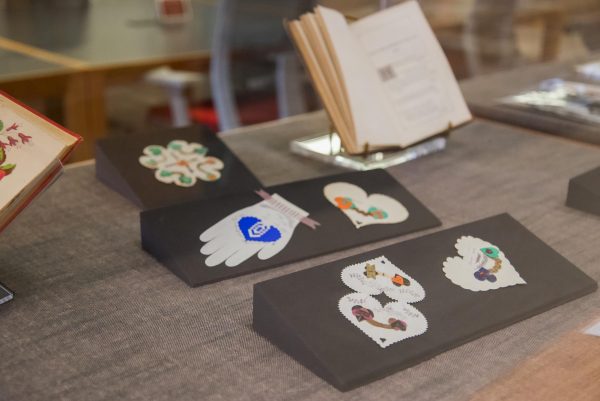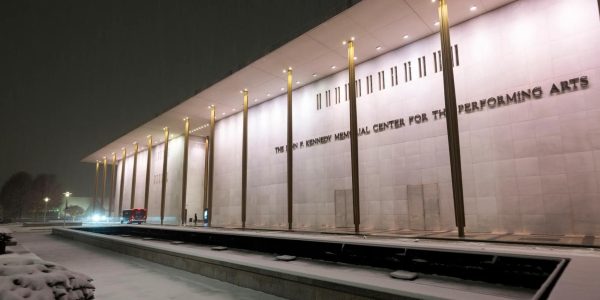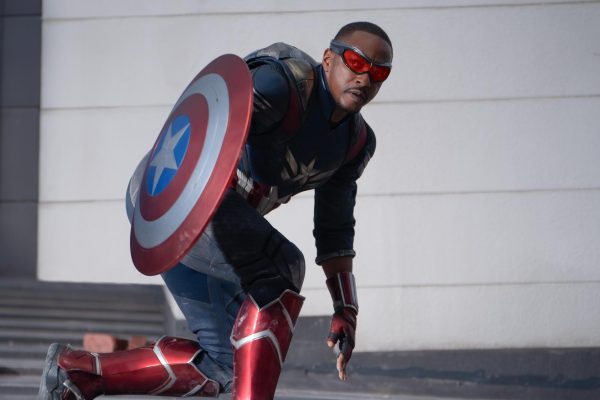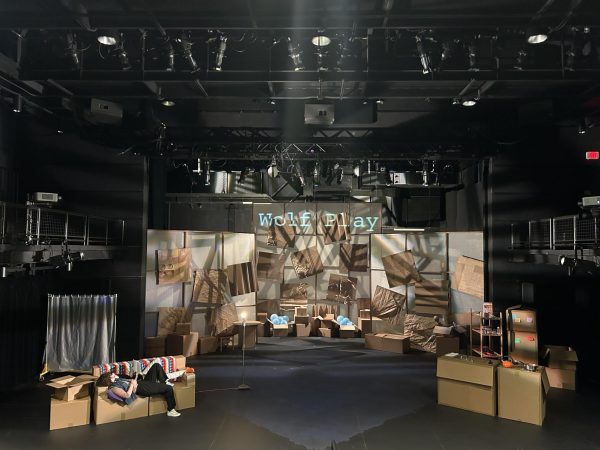“Sign: A Silent Film” Speaks to Experiences of Deaf Community
Editor’s note: This article contains mentions of intimate partner violence.
A love story without spoken dialogue, Adam Wachter’s Sign: A Silent Film follows two men named Aaron and Ben as they navigate their relationship through fights and celebrations. The film has a particular focus on their communication, since Aaron is deaf and Ben is hearing. The film is punctuated by several jarring scenes — for example, Ben sitting in a chair at a party with Aaron’s friends before he knows how to sign, watching them communicate while holding a bowl of popcorn in his lap; another, a fight during which Ben violently grabs Aaron’s hands in the middle of speech, effectively silencing him. Ultimately, the film itself serves as cultural commentary on assimilation into an unfamiliar culture — both for those who combat it constantly, and those for whom it’s an entirely new experience.
Twenty-three students, two staff members, and two community members gathered in Wilder 101 on Monday to watch Sign: A Silent Film, which Wachter wrote, produced, and scored. The event was co-hosted by College juniors Maddie Hinkle and EmmaLia Mariner, who teach Oberlin’s Deaf Culture ExCo.
The film, open to the public during the Deaf Culture ExCo’s class time, was shown in two iterations and was followed by group discussion. In the first screening, the only sound accompanying the film was music, and the only communication was carried out through American Sign Language — those who are unfamiliar with ASL would be unable to understand certain parts of the story. In the second screening, the film was narrated by Descriptive Video Services. However, while individual things were translated, such as the signs for “food” or “condom,” longer argumentative sequences were left untouched.
What followed was a discussion of accessibility, wherein many viewers were frustrated by their inability to understand a language they did not speak. However, it was a 15-minute film in which most of the content was at least somewhat understandable, due to musical cues in one and DVS narration in the other — a drop in the ocean compared to the inaccessible spaces that many in the Deaf community navigate every day. The film points out that wen spaces are not accessible to everyone, people’s experiences are excluded and their valuable voices go unheard.
“It was an interesting artistic choice, and it was very purposeful,” Mariner said. “In a world where deaf people don’t have access to a lot of language, it was specifically trying to make hearing people who don’t know ASL uncomfortable in that space, and that’s a very valid and important way of expressing the differences between the Deaf community and the hearing world.”
However, Mariner added, it was interesting to note that the film could potentially be alienating to other deaf and hard-of-hearing people who didn’t necessarily know ASL or participate in Deaf culture.
In the context of deliberate discomfort, it was important for Hinkle and Mariner to make the space accessible in all other ways. They did so through choosing a central location, picking a sizable space with a large screen, providing trigger warnings, and, of course, providing pizza options for a variety of diets. They were aided in this process by María Zoraida Maclay, Oberlin’s Disability Resources Coordinator, and Monique Burgdorf, the Office of Disability Resources’ Interim Director. Hinkle and Mariner wanted to stress that Maclay and Burgdorf had provided incredible help in community building and event organizing.
“We cannot afford to be reactive,” Maclay wrote in an email to the Review, referring to policies on campus accessibility.
Oberlin’s ASL ExCo was disbanded due to concerns about what kinds of voices were being heard, as all of its teachers were hearing and felt uncomfortable representing an experience that was not their own. Mariner and Hinkle hope to bring back the ASL ExCo at some point, should someone with greater authority to teach it come forth. For now, they are doing their best to establish a Deaf community in Oberlin through their ExCo, the ASL lunch table in the lobby of Dascomb available at 12:15 p.m. on Tuesdays, and various events that they have in the works.
“There’s a history here that we’re trying to revitalize,” Hinkle said, referring in particular to a previous exchange connection between Oberlin and Gallaudet University, a D.C. school geared specifically toward deaf students.
As someone who spends summers working as an intern with deaf children in schools, Hinkle is very conscious of the greater need for a Deaf community on campus. Her work alongside Mariner, though, is geared toward maximizing that space. Maclay emphasized that the events that they organize should have an impact on campus beyond the scope of the event itself.
“We’ve done something,” Maclay said. “It was awesome. Now [the students] have the skills and confidence to build, and the staff … can provide the resources and support.”
There are several related new projects coming up in the fall. Obility, a student organization chartered for the next academic year, will provide a space for dialogue around disability and accessibility on campus. Work is also being done to implement a Disability Solidarity Theme Hall, and to bring back the Student Accessibility Advocates mentoring program for first-years.
“There’s a huge stigma against disability. That’s a thing,” Hinkle said. “So one of the important things is to create an awareness that people exist who are different — that they are still approachable and still people.”
To join Obility’s newsletter mailing list, contact [email protected].


